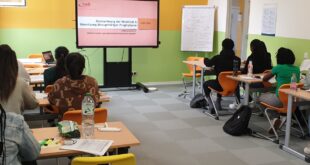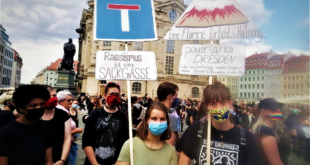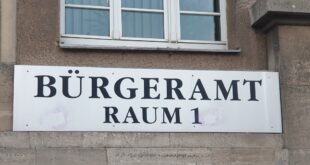In view of the rising infection figures, the federal states and the federal government on Thursday agreed on far-reaching measures, which will enter into effect on 24 November and have adverse practical consequences for the unvaccinated. Soon only vaccinated and recovered people will be allowed into restaurants, cinemas, gyms etc. An overview of what the federal and state governments decided at their meeting on Thursday:
Tougher measures when certain thresholds are exceeded
Henceforth, the decisive factor is not the 7-day incidence, but the so-called “hospitalisation rate”. For example, where a certain number of coronavirus patients are admitted to hospital, only vaccinated and recovered people should have access to recreational events, restaurants and hotels (2G). Some federal states already have such regulations.
If the rate is above three in any given region or federal state, the so-called 2G rule will apply to leisure facilities, cultural and sporting events, gastronomy and certain services throughout the state. That is, anyone who wants to eat in a restaurant or work it off in the gym must be vaccinated or have recovered from a coronavirus infection.
If the hospitalisation rate rises to more than six, vaccinated and recovered persons should additionally present a negative test result in certain facilities such as discos, clubs and bars (the so-called 2G plus).
Exempted from the rules are services of general interest. This means that you can go to the doctor, the pharmacy or the supermarket without vaccination. However, hygiene rules still apply here, such as the obligation to wear a mask.
3G on buses, trains and trams
The 3G rule now applies to buses, trams and trains. This means that passengers on public transport must either be vaccinated, have recovered or have been tested negative. A negative rapid test is valid for 24 hours. Random checks are planned, comparable to ticket checks. Rapid tests for all are to be free of charge.
3G at the workplace
The 3G rule applies in the workplace and employers are allowed to ask employees whether they have been vaccinated, for example. Those who are not vaccinated or have recovered must be tested daily. The employer must offer at least two tests per week. In addition, employees should work in a home office if possible.
Boosters, compulsory vaccination, bridging aid
The federal government and the states want booster vaccinations for everyone over 18 – approximately five to six months after the second shot. All federal states want to make vaccination compulsory for health care workers, for example, nurses in old people’s homes, doctors in hospitals and cleaners in care facilities.
The states asked the federal government to implement compulsory vaccination “as soon as possible”. Chancellor Angela Merkel announced that the federal government would decide “shortly” what its position would be.
Reliefs
The federal and state governments have decided on the payment of a care bonus to workers in the health care sector.
In addition, relief grants are to be extended until the end of March 2022. This should apply, for example, to artists whose concerts are cancelled again.
The word lockdown is not mentioned in the resolution paper of the federal government and the states, which has been approved by both the lower and higher chambers of the federal parliament, the Bundestag and the Bundesrat respectively. But it is not ruled out either. At the latest, if nine Covid-19 patients per 100,000 inhabitants are admitted to hospital in a federal state on a seven-day average, the state may take even stricter action.
Experts have been warning for weeks that the coronavirus spread is accelerating rapidly. “We are running into a serious emergency at the moment. We will really have a very bad Christmas if we don’t take countermeasures now,” said the president of the Robert Koch Institute (RKI), Lothar Wieler, on Wednesday evening.
Nationwide, the number of new infections reported in one day exceeded the 65,000 mark for the first time, according to the RKI. The number of new infections per 100,000 inhabitants in seven days rose to a high of 336.9.
Felix Dappah
 THE AFRICAN COURIER. Reporting Africa and its Diaspora! The African Courier is an international magazine published in Germany to report on Africa and the Diaspora African experience. The first issue of the bimonthly magazine appeared on the newsstands on 15 February 1998. The African Courier is a communication forum for European-African political, economic and cultural exchanges, and a voice for Africa in Europe.
THE AFRICAN COURIER. Reporting Africa and its Diaspora! The African Courier is an international magazine published in Germany to report on Africa and the Diaspora African experience. The first issue of the bimonthly magazine appeared on the newsstands on 15 February 1998. The African Courier is a communication forum for European-African political, economic and cultural exchanges, and a voice for Africa in Europe.


































